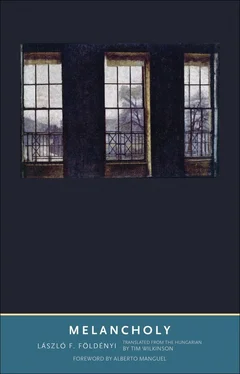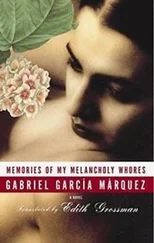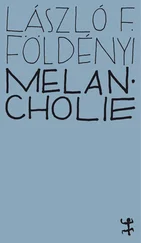It is fairly easy to list the motifs: the defining features of Romanticism, which have been rehearsed to the point of boredom, play the leading role — disappointment in the French Revolution; nausea felt over Classicism, disenchantment with values, etc. The causes are of no concern here; the consequences, more so. The stimuli for the “political” English and the “apolitical” German Romanticism were divergent, at least when looked at from a strictly sociohistorical point of view, yet the consequences were similar in many respects. We are looking for similarity, the reasons behind the strikingly similar individual lives. A horror of this similarity guided every single one of them. “I am an unspeakable person,” Kleist wrote to his sister, but all the same, the similarity of fates seems, mysteriously, a more powerful force and law than the desire of individual persons to be different. Was Hegel right, after all? Hegel, who was simply an interpreter of a truth that hounded so many Romantic melancholics to death? “We seek the unconditional and always find ourselves facing conditions and limits,” said Novalis, formulating the Romantics’ basic paradox. Byron averred the same as the chorus in Oedipus at Colonus: “Not to be born is best / when all is reckoned in.” Being is a constraint , the Romanticist acknowledged, but immediately added: it was precisely the recognition of this that guaranteed the desire for infinity . Unlike melancholics of antiquity, the Romantics experienced both constraint and infinity in their own completeness, and for them the recognition of finitude was just as tragic as the yearning for infinity was attended by happiness. This melancholy paradox had been pointed out earlier: John Donne’s poetry, Sir Thomas Browne’s miscellaneous tracts, and Pascal’s pensées were concerned with that duality. Nevertheless, Romanticism was the first to consider this paradox a task for the technique for living , not just a theoretical-artistic task and challenge. And although one may agree with Paul Valéry that he who attempts to define Romanticism must have lost his senses, the similarity and consistent reappearance (that continues to the present day) of certain ways of living are strong indications that individual fates have general legitimacy. They can be placed in a historico-philosophical context — although it was precisely from all-revealing and all-resolving (that is, blurring) histories of philosophy and universal explanations that those people fled into death, insanity, or (voluntarily donning eyeshades) back into the bustle that knows nothing of paradoxes.
In Friedrich’s painting there are three people peering into death or maybe looking toward us from death. But other faces loom up from the abyss. Hovering eternally young are twenty-eight-year-old Novalis, twenty-five-year-old Wackenroder, twenty-two-year-old Körner, twenty-five-year-old Hauff, twenty-four-year-old Büchner, seventeen-year-old Chatterton, twenty-one-year-old White, thirty-four-year-old Kleist, thirty-three-year-old Wilhelm Müller, thirty-five-year-old Grabbe, twenty-six-year-old Wilhelm Waiblinger, twenty-one-year-old Maria Mnioch, thirty-one-year-old Charles Wolfe, thirty-three-year-old Froude, thirty-three-year-old Shelley, twenty-seven-year-old Burns, thirty-six-year-old Byron, twenty-nine-year-old Anne and thirty-year-old Emily Brontë, twenty-six-year-old Karoline von Günderrode, and, somewhat further away, having died a bit older, thirty-nine-year-old Platen. And behind them are those who went mad: Bürger, Hölderlin, Lenau, Robert Schumann, and, further back, thirty-one-year-old Franz Schubert, surrounded by painters, in which group one can spot twenty-two-year-old Karl Philipp Fohr, twenty-four-year-old Franz Pforr, twenty-seven-year-old Johann Erhard, twenty-six-year-old Oldach, and, at the edge, thirty-three-year-old Philipp Otto Runge, who was at least as familiar with the cliffs on Rügen as Friedrich. The crowd is of course much bigger, but out of the mass of indiscernible faces, let us mention just a few who pushed to the foreground around 1800. On this side of the chasm, standing on secure ground, is Friedrich Schlegel, making the following remark: “We call many of them artists, though in reality they are nature’s works of art” (quoted in Krimmel, “Naturgestalt und Kunstfigur,” xxxvi). Of course, it was easy for him to talk: he did not venture to the brink of the abyss, and apart from the Romantic straying of his younger days, up until the age of fifty-seven he had a sure touch in telling the difference between self and nature, life and death, health and sickness. He was caught up by the specter that threatens melancholic geniuses: he did not go mad, just dull. He had nothing but knowledge of what others experienced: that an individual has not only boundaries but boundlessness as well — and for the modern mind, that contradiction is the most decisive experience. Those who died prematurely young did not die of the sheer existence of this duality but of its irreconcilability. But the destruction of human lives, the irrevocable disappearance of personalities, is a warning to us, successors and contemporaries, that precisely because of its irreplaceability, the single person, the individual and his unique life, has its own exclusive, definitive, and irrefutable truth, just the same as history or “progress” that has outgrown man or some historical perspective that ignores melancholia entirely. It is in their own defense, as it were, that those who stayed alive claimed that those who died were sick, feeble sleepwalkers, or that the great number of coincidental deaths was pure chance. In claiming this, they essentially said nothing about melancholic Romantics. They treated this problem as a cause-and-effect matter, a problem reminding us that life is of an inexplicable, inscrutable character beyond rational logic. Rational argumentation connected to the death of others (he or she died because. .; he or she died, but I am still living; he or she died, although. .) is always a manifestation of the reasoner’s healthy and primitive vital instinct, and it serves only to distance us from facing up to death and our own uniqueness.
Man’s place in the universe — hardly any notion was more distressing to the Romantics. Under no circumstances could they accept that the goal should be to accommodate, to comply with given conditions, and European culture in 1800 was maybe the first turning point in its history that made questionable every value that had been thought secure. “God is dead,” the young Hegel declared well before Nietzsche, and it was the Romantics who drew the lesson. Hegel was not alone: a similar thought is expressed by Jean Paul in his novel Siebenkäs (1796–97) and by August Klingemann in the novel Nightwatches , published in 1804. William Blake writes in a poem titled The French Revolution: “God, so long worshipp’d, departs as a lamp / Without oil.” If the values that human beings had developed were not eternal truths, then it was ludicrous to regard adjusting to them as the ultimate goal in life. The Romantics sloughed off their prejudices like a snake its skin, leaving just their bare, denuded epidermis, which gave no protection and felt painful for no particular reason. Emily Brontë writes in “The Prisoner”:
O dreadful is the check — intense the agony—
When the ear begins to hear, and the eye begins to see.
Pain was incarnated in them, and since the pain was a consequence of human culture and civilization, it could not be alleviated. “My soul is so wounded,” Kleist wrote in a letter to his sister,
that it almost hurts when I stick my head out the window and the sun shines on it. Some people consider this to be illness and overstress,
9
but you, who are capable of not looking at the world only from your own point of view, will not see it as such. Since the beginnings of my youth, I have been irresistibly preoccupied with beauty and morality in my thoughts and writings, and for that reason I have become so sensitive that even the tiniest of touches to which every person’s senses are exposed in the course of worldly matters hurts me two or three times as hard.
Читать дальше












